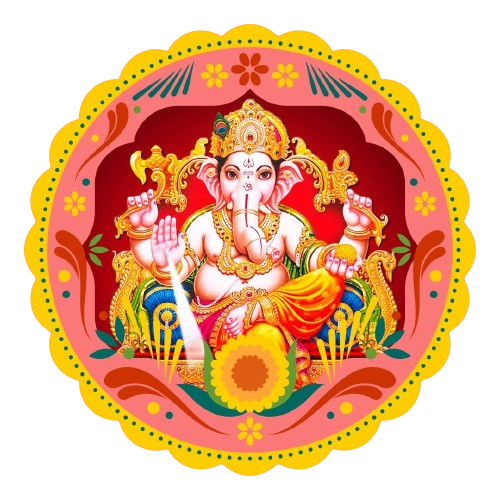Panchang Today: October 14, 2024
Panchang, an ancient Hindu calendar, holds profound significance in Hindu culture. Derived from the Sanskrit words “Panch” meaning “five” and “Ang” meaning “part,” Panchang refers to the five components that constitute a traditional Hindu calendar: Tithi (lunar day), Vara (weekday), Nakshatra (star), Yoga, and Karana. It serves as a comprehensive guide, offering insights into auspicious and inauspicious timings for various activities, aligning life with celestial energies.

Today’s Hindu Panchang
हिंदी के लिए यहां पर क्लिक करें
Panchang Today: October 14, 2024
Daily Panchang Details
Today’s Date: October 14, 2024
Kaliyuga Era: 5126
Vikram Samvat: 2081
Shaka Samvat: 1946
Year: Shri Kalyukt
Ayana (Solstice): Dakshinayan (Southern Solstice)
Gola (Path of Sun): Southern Hemisphere
Season: Sharad (Autumn)
Month: Ashwin
Fortnight: Shukla (Waxing)
Tithi (Lunar Day): Ekadashi, until 6:41 AM (12th day, Kshay)
Day: Monday
Nakshatra (Star): Shatabhisha until 12:43 AM* (Purva Bhadrapada)
Moon Sign: Aquarius (all day)
Yoga: Gand until 6:00 PM, Vriddhi thereafter
Karana: Vishti (Bhadra) until 6:41 AM, Bava until 5:51 PM, Balava until 3:42 AM*
(Note: The times with (*) indicate midnight times after sunrise.)
Sunrise Timing Differences in Various Cities
Delhi: -10 min
Jodhpur: +6 min
Jaipur: -5 min
Ahmedabad: +8 min
Kota: -5 min
Mumbai: +7 min
Lucknow: -25 min
Bikaner: +5 min
Kolkata: -54 min
Jaisalmer: +15 min
Sunrise, Sunset, and Other Key Timings
Sunrise: 6:30:38 AM
Sunset: 6:03:42 PM
Day Duration: 11 hours 33 minutes 3 seconds
Night Duration: 12 hours 27 minutes 25 seconds
Moonrise: 4:03:31 PM
Moonset: 3:54:01 AM
Rahu Kaal: 7:57 AM to 9:24 AM (inauspicious)
Yamagandam: 10:51 AM to 12:17 PM (inauspicious)
Gulika: 1:44 PM to 3:10 PM
Abhijit Muhurta: 11:54 AM to 12:40 PM
Panchak (five days inauspicious for specific activities): Continuing
Havan Muhurta (Auspicious time for fire offerings): Not applicable today
Disha Shool (Direction to avoid traveling): East
Remedy: Drinking milk before travel
Special Timings and Auspicious Periods
- Abhijit Muhurta: A very auspicious time 24 minutes before and after midday (except on Wednesdays).
- Brahma Muhurta: 1.5 hours before sunrise, considered auspicious for prayers and meditation.
- Pradosh Kala: 45 minutes before and after sunset.
- Gau Dhuli Time: 12 minutes before and after sunset.
Bhadhra Details (good and bad Bhadhra):
Bhadhra in Aries, Taurus, Gemini, and Scorpio signs is considered auspicious in the heavens, but in Virgo, Libra, Sagittarius, and Capricorn signs, it is considered auspicious in the underworld (Patala Lok). Bhadhra in Aquarius, Pisces, Cancer, and Leo is considered inauspicious in the mortal world (Mritulok).
Planetary Positions at Sunrise
| Planet | Sign | Degrees | Nakshatra | Quarter | Nakshatra Sound |
|---|---|---|---|---|---|
| Ascendant | Virgo | 26°40′ | Chitra | 1 | Pe |
| Sun | Virgo | 26°59′ | Chitra | 2 | Po |
| Moon | Aquarius | 8°53′ | Shatabhisha | 1 | Go |
| Mercury ^ | Libra | 6°12′ | Chitra | 4 | Re |
| Venus | Scorpio | 1°15′ | Vishakha | 4 | To |
| Mars | Gemini | 27°9′ | Punarvasu | 3 | Ha |
| Jupiter | Taurus | 27°4′ | Mrigashira | 2 | Vo |
| Saturn * | Aquarius | 19°28′ | Shatabhisha | 4 | Su |
| Rahu * | Pisces | 11°33′ | Uttarabhadrapada | 3 | Jha |
| Ketu * | Virgo | 11°33′ | Hasta | 1 | Pu |
Daytime Choghadiya (Auspicious Timings)
- Amrit (Best): 6:31 AM to 7:57 AM
- Shubh (Auspicious): 9:24 AM to 10:51 AM
- Chanchal (Unstable): 1:44 PM to 3:10 PM
- Labh (Beneficial): 3:10 PM to 4:37 PM
- Amrit (Best): 4:37 PM to 6:04 PM
Night Choghadiya
- Chanchal (Unstable): 6:04 PM to 7:37 PM
- Labh (Beneficial): 10:44 PM to 12:17 AM
- Shubh (Auspicious): 1:51 AM to 3:24 AM
- Amrit (Best): 3:24 AM to 4:58 AM
- Chanchal (Unstable): 4:58 AM to 6:31 AM
(Note: When auspicious and inauspicious yogas occur together, the auspicious one is prioritized.)
Auspicious Tithis for Shiva Worship:
- Shukla Paksha: 2, 5, 6, 9, 12, 13
- Krishna Paksha: 1, 4, 5, 8, 11, 12, 30
Nakshatra Birth Details and Name Suggestions
If a child is born under Gand Nakshatra (Revati, Ashwini, Ashlesha, Magha, Jyeshtha, or Moola), Gand Nakshatra Shanti (peace) ritual is required.
- Births up to 8:21 AM – Nakshatra: Shatabhisha, Quarter 1 – Name Sound: Go
- Births until 1:50 PM – Nakshatra: Shatabhisha, Quarter 2 – Name Sound: Sa
- Births until 7:17 PM – Nakshatra: Shatabhisha, Quarter 3 – Name Sound: Si
- Births until 12:43 AM – Nakshatra: Shatabhisha, Quarter 4 – Name Sound: Su
- Moon Sign: Aquarius – Metal: Copper
Post 6:05 AM – Nakshatra: Purva Bhadrapada, Quarter 1 – Name Sound: Se
From 6:05 AM to Midnight – Nakshatra: Purva Bhadrapada, Quarter 2 – Name Sound: So
Moon Sign: Aquarius – Metal: Iron
Today’s Special Events
- Vrat (Fast): Papankusha Ekadashi (Vaishnava-Nimba)
- Festivals: None
- Special Period: Ongoing Chaturmas Rituals
- Global Observance: World Standards Day, World Migratory Bird Day
Next Day Preview
Date: October 15, 2024
Global Observance: International Day of Rural Women, World Students’ Day
Astronomical: Not present
Tithi: Ashwin Shukla Trayodashi, Tuesday
Vrat (Fast): Bhaum Pradosh
Festivals: None
Special Period: Ongoing Chaturmas Rituals
Today Special
Panchang Today: October 14, 2024
When to Cut Hair According to Dharma and Astrology
It is essential to know when we should cut our hair and when we should avoid it. Let’s explore what Vedic science says about this.
In our traditions, there are many customs related to everyday activities, such as taking a bath before performing any rituals, not eating rice on Ekadashi, and not cutting hair on Tuesdays, Thursdays, or Saturdays. Haircutting is one of the significant customs governed by rules. Let’s understand why.
The Science Behind Special Days for Haircuts
Even today, elders often advise us not to cut our hair on Saturdays, Tuesdays, or Thursdays. But why is this? When we explore ancient and authentic texts related to space science and astrology, we find a clear scientific explanation for this practice.
According to science, certain days of the week are marked by specific rays emitted by the planets, which are harmful to our health. These rays, especially on Saturdays, Tuesdays, and Thursdays, affect the head directly. The brain, being the most vital part of the body, is highly sensitive, and the middle portion of the head is delicate. Hair plays a protective role for the scalp, so cutting hair on these days is considered unsafe.
Cutting Hair on Tuesday: Risk to Longevity
Scriptures state that cutting hair on a Tuesday can reduce a person’s lifespan by eight months. Thursday is associated with Goddess Lakshmi, and cutting hair on this day could lead to a decrease in wealth. Similarly, cutting hair on Saturday could shorten life expectancy by seven months.
In astrology, Tuesday is ruled by the planet Mars (Mangal), which governs the blood in our body. Hair growth is directly connected to blood flow. Saturday is governed by Saturn (Shani), which influences the skin. Therefore, cutting hair on Tuesdays and Saturdays could lead to negative impacts from Mars and Saturn, leading to misfortunes related to health or luck. This is why it is advised to avoid haircuts on these days.
Is This Just Superstition or Science?
While these beliefs might be dismissed as superstition today, in ancient times, the traditions and guidelines set by sages and scholars were likely rooted in deeper observations that had a significant impact on daily life. They were intended to protect well-being, balancing cosmic and planetary influences with physical health.
Thus, even though modern views may see these customs as outdated, they have roots in practices designed for our benefit.
हिंदी के लिए यहां पर क्लिक करें
Note:- For more such information join our WhatsApp channel or Telegram channel. Thank you
Category
All Puja Vidhi, All Chalisa, Astrology, Feng Shui Tips, Horoscope, Love Horoscopes, Muhurta, Panchang, Paranormal, Upaya, Unique, Vastu Dosh
The Relevance of Panchang in Daily Life
In contemporary times, Panchang remains an invaluable tool, guiding millions in making crucial decisions concerning weddings, engagements, travel, business ventures, and religious ceremonies. It’s not merely a calendar but a repository of cosmic wisdom, believed to influence the outcomes of endeavors undertaken during specific astrological configurations.
Tithi: The Lunar Day
Tithi signifies the phase of the moon and plays a pivotal role in determining auspicious timings for rituals and ceremonies. It consists of 30 Tithis, each representing a specific angle between the sun and moon. From Pratipada (first day) to Amavasya (new moon) and Purnima (full moon), each Tithi holds unique significance, impacting human emotions, actions, and spiritual endeavors.
Vara: The Weekday
Vara refers to the days of the week, each associated with a celestial deity. Understanding the influence of different weekdays on specific activities aids in optimizing productivity and success. For instance, Monday, ruled by the moon, is auspicious for initiating new ventures, while Saturday, governed by Saturn, is conducive to spiritual practices and introspection.
Nakshatra: The Lunar Mansion
Nakshatra denotes the 27 lunar mansions traversed by the moon during its monthly cycle. Each Nakshatra exerts a distinct influence on human affairs, influencing personality traits, career choices, and relationship dynamics. By aligning actions with favorable Nakshatras, individuals can enhance prosperity and well-being.
Yoga: The Combination
Yoga signifies the auspicious or inauspicious combinations formed by the positions of the sun and moon. There are 27 Yogas, each associated with unique attributes and effects. Harnessing the energy of propitious Yogas empowers individuals to achieve success and fulfillment in their endeavors.
Karana: The Half of a Lunar Day
Karana represents half of a Tithi and influences the commencement of activities. With 11 Karanas classified into two categories – fixed and movable, it’s crucial to select an appropriate Karana for initiating tasks to ensure favorable outcomes.
Panchang Today: October 14, 2024
Tithi Analysis
- Krishna Paksha Dwadashi: Ideal for seeking spiritual enlightenment and engaging in charitable acts.
- Rohini Nakshatra: Favorable for artistic pursuits, creativity, and nurturing relationships.
- Vriddhi Yoga: Conducive for growth-oriented activities and financial investments.
- Taitila Karana: Suitable for activities requiring endurance and perseverance.
Harnessing the Power of Panchang
Incorporating Panchang insights into daily life fosters harmony with cosmic rhythms, enabling individuals to navigate challenges with wisdom and grace. By leveraging the guidance provided by Panchang, one can optimize opportunities for success and fulfillment in all endeavors.
Conclusion
Panchang, with its intricate wisdom and celestial insights, serves as a beacon of guidance in the journey of life. Embracing its teachings empowers individuals to tread the path of prosperity, aligning their actions with cosmic energies for holistic well-being.

